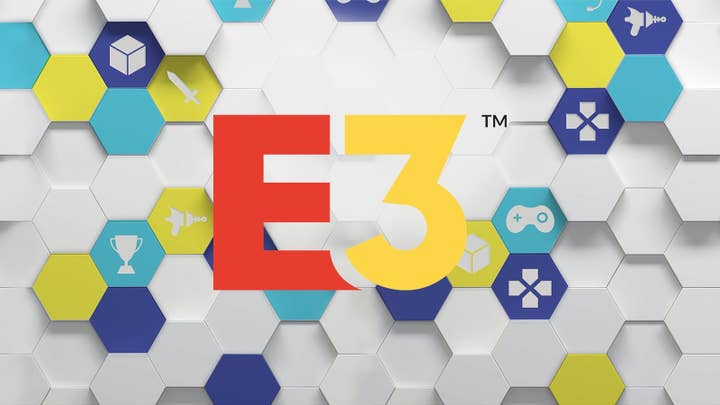A year without E3 is a chance to take stock | Opinion
The ESA's show has failed to articulate what function it will serve to the modern industry -- this year's cancellation will force that discussion to happen
E3 2020 is cancelled. Ever since the earliest speculation that this year's GDC -- which ought to have been kicking off next Monday -- might be untenable given the spread of COVID19, people across the industry have been wondering if E3 might also face the axe.
Ultimately, that decision doesn't seem to have been a particularly difficult one. For a variety of reasons, not least of them the escalating severity of the COVID19 situation, the ESA did not drag out the cancellation decision in the slightest -- something for which GDC's organisers faced some fairly well-deserved criticism -- cancelling the event almost three months before it was due to begin on June 9.
The cancellation unquestionably punches a hole in the industry's calendar, and in the marketing and communication plans of several major companies. E3 has been a fixture of the landscape since the '90s, and while it has faltered at various points in its history -- notably a deeply unpopular relocation to Atlanta for a couple of years in the '90s, and a tone-deaf but temporary downsizing of the show in the late '00s -- its importance as a defining week in which the world's attention is turned to the games business has never entirely faded. Even companies who don't attend E3 -- a list that swells with more prestigious notables every year -- recognise the importance of E3 week, usually substituting their actual show attendance with pre- or post-E3 events in local markets, or with online broadcasts about their upcoming games.
The biggest risk to E3 is that the cancellation has a minimal impact on most firms' ability to effectively promote their wares
The thing that should be keeping the ESA awake at night, however, is the question of whether the hole punched in the calendar will actually be all that big. This year's cancellation was unavoidable, and doing it as early as possible is unquestionably the right choice. But by removing the trade show from the equation and forcing companies who had planned to exhibit to instead fall back on alternative options, the biggest risk to the show is actually that the cancellation ends up having minimal impact on most firms' ability to effectively promote their wares.
E3 today still faces the same fundamental problem that it did in the '00s, which forced the ill-fated downsizing of the event; it's a hugely expensive event, both for the publishers and platform holders who exhibit at it and for the media organisations who send staff there to cover it. If it turns out that a similar amount of value in marketing and communication terms can be generated without E3 -- well, if the Emperor really has no clothes, this cancellation will make that situation undeniable.
It's not, after all, as if E3's current woes began with the spread of coronavirus. Long before we had the slightest inkling that a pandemic might throw such a spanner into the works of every event planned for 2020, the status of this year's E3 was already being spoken about in a manner not dissimilar to inconsiderate family members discussing an elderly relative's terminal care while they're still in the room and listening. Sony's departure from E3 in 2019 and continuing absence in 2020 -- despite having a new console to unveil -- was a hammer blow to an event whose cost-value equation was already being openly questioned by many in the industry, both on the publisher and media sides.

The new format for the show -- nakedly hungry in its pursuit of celebrities and social media influencers while sounding like the seventh circle of hell for specialist or traditional media organisations -- pushed many people in the industry to ponder openly whether E3 was going to be a worthwhile event to attend at all.
In attempting to bridge the relevance gap between being a trade show and being a consumer event, there was a strong sense that the organisers had somehow, miraculously, managed to incorporate only the worst aspects of both worlds. A jamboree of bored-looking celebrities, long queues and cringeworthy, artificial attempts to create "energy" with committee-approved wacky hijinks; all of it creating an environment utterly unconducive to the trade actually seeing, playing or learning about new games and hardware, while still also being stuffily "exclusive" and inaccessible to most actual consumers.
Even a decade or more ago there was a tacit recognition that E3 itself wasn't a particularly good place to showcase software
Yet even if there was plenty to criticise about the new format E3 imagined for itself, it's also important to note just what a challenging environment this is for the event's organisers. That they feel pulled simultaneously in so many directions -- with every stakeholder in the event seemingly wanting different things, or even wanting mutually contradictory things -- is a consequence of an intractable problem which does indeed demand a radical reinvention of the show.
E3's old purpose -- connecting publishers with retail buyers and media -- lingers on, yet it has largely lost its meaning in a time when products can be showcased directly to audiences all over the world in online broadcasts, while the number of retailers that are actually relevant to any product launch planning has shrunk to the point where they can be counted on the fingers of one hand. The show's new purpose, meanwhile, remains deeply contested; nobody, least of all the event's organisers, seems quite sure what E3 is going to be in an era when the shade of its original raison d'etre as a meeting point for publishers, media and retail finally fades into the mist.

That's the process that is most likely to be accelerated massively by this year's cancellation. E3's original purpose, on life support for so long, is most likely going to have its plug pulled by the forced recognition that the industry can get about as much attention to its major products using livestreams and small local events as it did by upping stakes and shipping jumbo jets full of staff and equipment to the LA Convention Centre every year. Sony, it appears, made that determination last year; Nintendo was in some senses way ahead of the curve when it switched the bulk of its E3 efforts over to a major Nintendo Direct online event several years previously.
Yet even a decade or more ago there was a tacit recognition that E3 itself wasn't a particularly good place to showcase software. Many publishers would spend lavishly on their E3 presence, only to invite media and retail partners around the world to smaller local events in the following weeks where the games could be demonstrated properly. If the absence of the event itself -- replaced by an "E3 week" with no actual E3 at its heart -- yields much the same results in the end, it will only reinforce a sense that this is a show which has existed long past its sell-by date on a combination of industry inertia and the fact that a lot of well-established people in the business very much like getting to drink cocktails in the bar at the Standard on other people's expense accounts once a year.
Most other industry events fill a position for which both the demand and supply is clearly defined
Of course, E3 is far from being the only major event that has been cancelled due to the COVID-19 threat, and is also far from being the only event for which skipping a year will prompt some serious consideration of the role it actually plays. Yet most other industry events fill a position for which both the demand and supply is clearly defined; major consumer-facing shows around the world address a genuine desire from core consumers as well as being a powerful marketing tool, while events such as GDC function as vital networking platforms for creators even if much of their actual content could indeed be replicated online.
The lasting legacy of these cancellations may include significant changes to those events, but it's unlikely to change their underlying structure too much. For E3, however, this cancellation ought to be an inflection point where a tough and long-delayed decision is made about what role, exactly, E3 is going to play for the industry in the coming years.
One consideration that must be kept in mind as those decisions are being made is that while there are a great many publishers out there for whom E3's utility can be replaced with online or local events, there are others for whom E3's role has always been more of a double-edged sword -- and for whom its benefits will be far more difficult to replicate. The industry's biggest companies can well afford international travel and major booths at a flashy trade show, but they also have the clout to get their products and ideas in front of the right people -- be they media, influencers, publishers, or retailers -- regardless of whether there's a trade show on or not.
At the lower rungs of the business, however, there is a whole ecosystem of companies and creators for whom events like E3 -- and GDC, for that matter -- have always been a significant resource drain, yet nonetheless offer a unique opportunity to put their games in front of people whose attention would be almost impossible to draw at other times of the year. Often the brash glitz and bright lights of E3's biggest spenders have obscured these smaller titles anyway, a problem that's arguably been amplified by format changes over the years. It is far from an easy or fair opportunity, but for many it's been a vital one.
If the industry's trade shows in general, and E3 in particular, are forced to reinvent themselves and rethink their role in the wake of this year's cancellations, that will be a net positive for the industry. That rethinking, though, must involve genuine thought, and voices other than those of multi-billion dollar companies must be heard along the way.
If E3 is going to continue to be relevant to the industry in a decade's time, it must be a relevance borne out of playing a useful role not just for publishers who want to eclipse each other's booth spending and celebrity-snaring, but also for the wide range of media questioning the cost of attendance, for the smaller companies seeking a shot at a broader audience -- and for the consumers for whom the name E3 still conjures magic, but the reality has increasingly been little more than tall tales of other people's junkets and a flood of trailers on YouTube.

